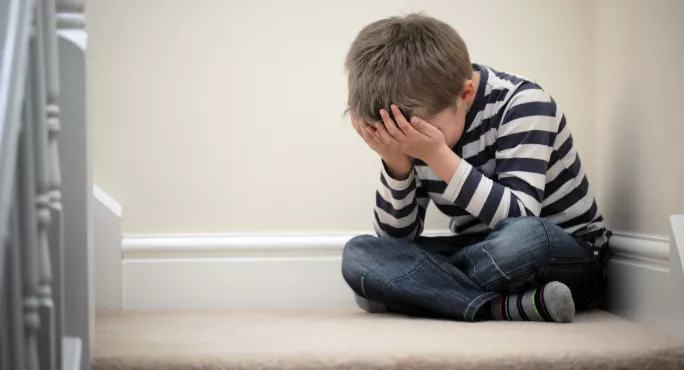- Home
- 4 activities to help anxious students
4 activities to help anxious students

Young people have had their normal routines disrupted since March, and have been adapting to a very different way of life that they didn’t expect, or ask for.
As schools call home and contact families, you might be hearing about how your students are struggling with these changes.
Perhaps they or their parents describe how they’re more clingy than normal, or struggling to concentrate. It’s possible that they’ve developed a stutter or a tic, or developed rituals that hadn’t been there before.
But how can you help when these students might not even be returning to your classroom until September?
For some of these students, you might need to contact external agencies for more support, but to put something in place for the interim, or for those students with more mild anxieties, here are some activities that could help.
1. Drawing your feelings
A great way to express our feelings is through pictures.
The child should fold a piece of paper to make four sections, and then label them as follows:
- What I miss the most
- What I like about quarantine
- First thing I’m going to do
- One thing I’ve learned about myself
This is a way to open up discussion about the fears a child has, as well as allowing them to also focus on more positive sides to the last few months.
It also encourages them to think towards the future, and allows them to visualise a time when things will be better.
2. Scavenger hunts
Explain to the student that this is a really fun game to play while you’re on a video call with someone.
It can even be played with your family in your house, or students have the option to play alone.
It helps with anxiety because it gets children moving and encourages them to use their five senses, which will help them to feel grounded. If a child is becoming anxious and catastrophising, a parent can use this game to bring them back to the “now”.
Take it in turns to find different objects. For example:
- Find me something that is red.
- Find me something that begins with the same letter as your name.
- Find me something that helps to calm you down.
- Find me something that you are thankful for.
- Find me something that smells nice.
- Find me something that you like the feel of.
3. Squiggle game
It’s important for children who are finding this time challenging to spend time one on one with an adult. This game is useful as it gives that time a purpose, and can allow conversations to happen while the focus is elsewhere. These sorts of conditions are best for getting children to open up and talk.
You will need:
- Two different coloured pens and six pieces of plain paper
How to play:
- You both choose your pen and decide who will go first.
- The first player makes a squiggle on the paper.
- The other player has to turn that squiggle into a picture of anything that they can think of and write down what it is at the top. This could be a dog, a spoon, a rocket; anything.
- There is no right or wrong drawing.
- Take it in turns in doing this until you have six pictures.
- Lastly, put all the pictures out in front of you and take it in turns to make up a story that involves using all of the pictures.
4. Cookie breathing
It is well-known that breathing exercises help with the management of anxiety, but trying to encourage younger children to use these techniques can be tricky.
Using the script below can be helpful with young children. It uses visualisation and a “story” to help them perform breathing exercises to calm down and focus.
I want you to pretend that you’ve just baked some delicious cookies.
I wonder what flavour you have chosen?
Now, pretend to put your oven mitts on. (Safety first!)
Open the oven.
Take a deep breath in through your nose to smell them.
They smell so good, don’t they?
But, they’re still too hot to eat so you need to cool them down by blowing out through your mouth
You don’t want to burn your mouth!
The parent or carer should repeat this five times, and each time breathe with the child slowly and inhale deeply.
Roisin Robinson is a play therapist for the EWMHS
Keep reading for just £1 per month
You've reached your limit of free articles this month. Subscribe for £1 per month for three months and get:
- Unlimited access to all Tes magazine content
- Exclusive subscriber-only stories
- Award-winning email newsletters